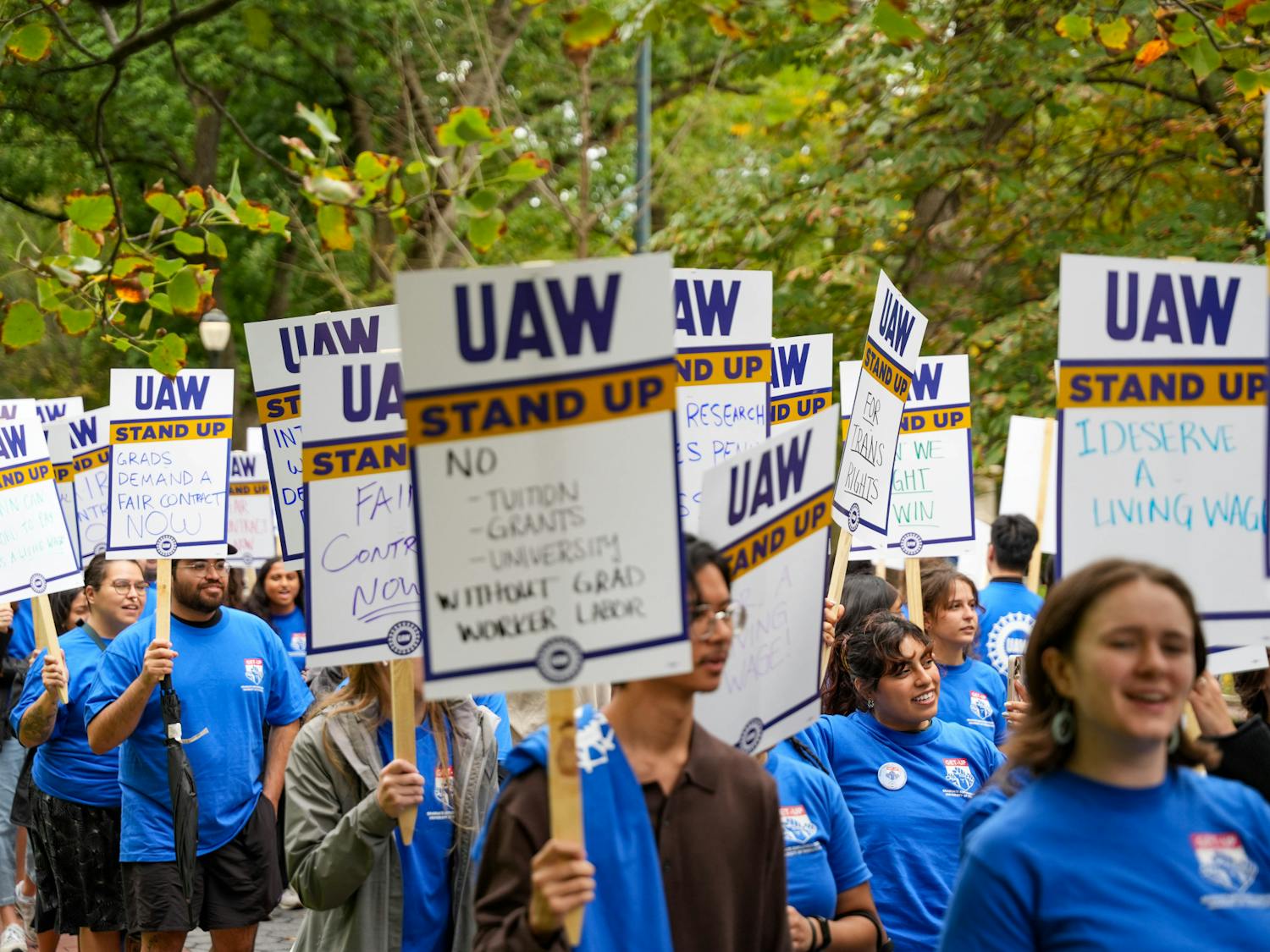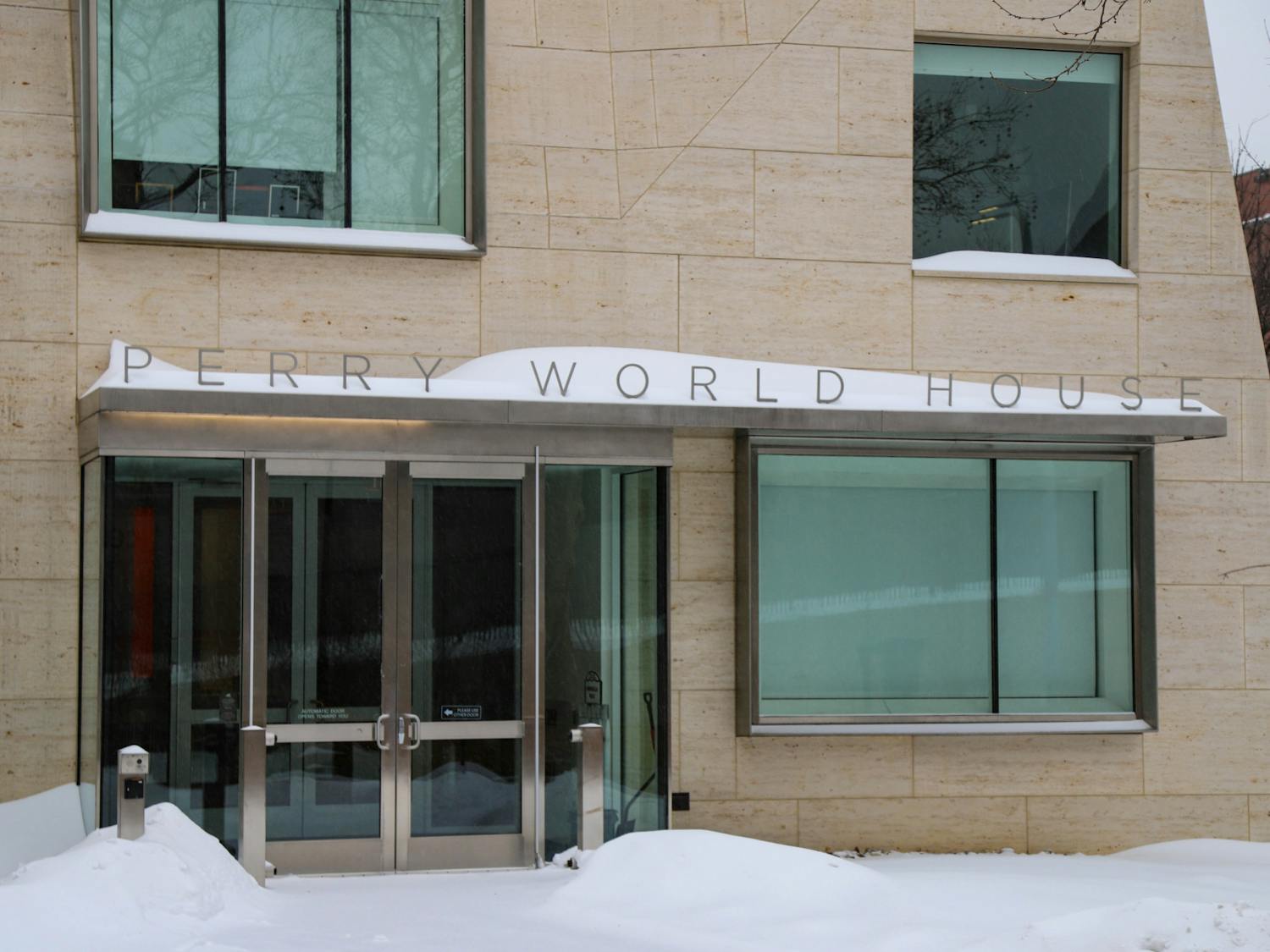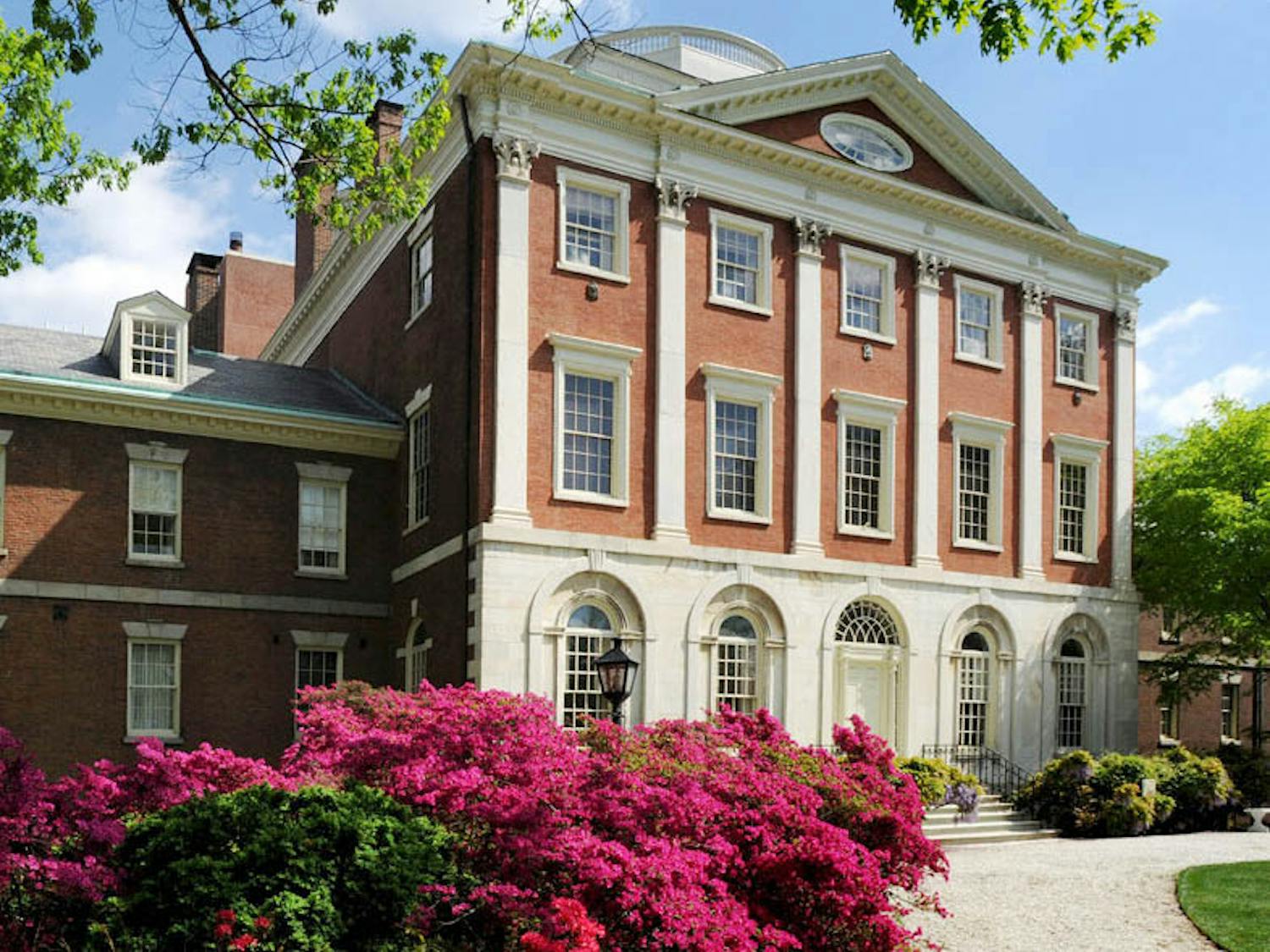Thick textbooks and heavy backpacks are about to be a thing of the past for The Wharton School’s executive Masters of Business Administration students.
Starting in May, all 400 executive MBA students will receive iPads for their two years at Penn, Associate Dean of Wharton Computing Deirdre Woods said.
This “full-blown iPad implementation” will cost “next to nothing because the iPads are not really expensive and Wharton is able to reuse them,” she said. The iPads will be paid for through parts of the executive MBA tuition that were previously dedicated to textbooks and course materials.
The executive MBAs were chosen for this initiative because they are a relatively small group with 200 students in each class, Woods said. The majority of students work as business executives during the week and travel to campus every other weekend to attend classes.
“It was very tedious carrying those books back and forth, on top of having clothes to bring,” said David Myung, a second-year executive MBA candidate, who commutes two and a half hours from Maryland to Philadelphia.
“My company gave me an iPad, and it was night and day. If I’d had it from year one, it would have been so much easier,” Myung added. “I think the students will be very thankful.”
“We got big binders that tended to be a lot to carry,” first-year executive MBA candidate Lea Abdalla said. Like Myung, she used her own personal iPad in class.
“At the end of the day, it’s totally worth it,” she said.
Another benefit of the iPad is that it allows Wharton to “keep up with the latest technology,” Wharton’s Technical Director David Comroe said.
The iPad was chosen over other new technologies, such as the Kindle, because of its greater functionality, associate director of the MBA Program for Executives Diane Harvey said.
“I hope that the payoff will be increased engagement,” Woods said.
However, not everyone thinks the iPad is a perfect solution.
“The iPads are not so conducive for taking notes in class,” Abdalla said. “Notebooks are easier.”
She added that students are not allowed to use electronic devices during open-book midterms and finals, so it’s important for students to also have hand-written notes.
While the initiative is being well received by executive MBA students, English professor Anne Hall wrote in an e-mail that having the internet in the classroom is “always negative.” It “detracts from the attention that is necessary to good conversation and argument because students are absorbed in taking notes — that is, when they are not checking their e-mail.”
Despite these concerns, Wharton administrators are optimistic about this initiative.
This is a “very new, exciting, revolutionary period in technological advancement,” Woods said, adding if the plan goes well, Wharton may dole out iPads to its other programs.








